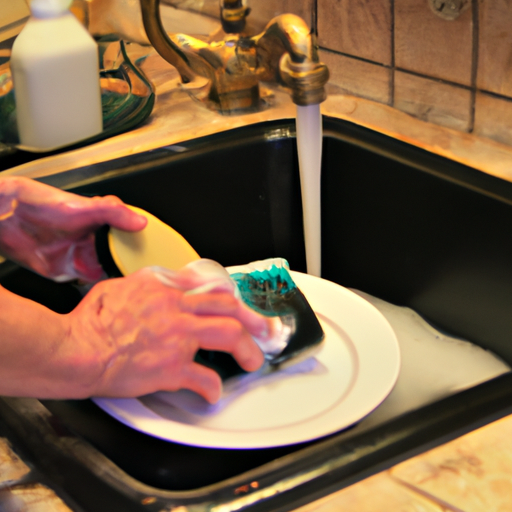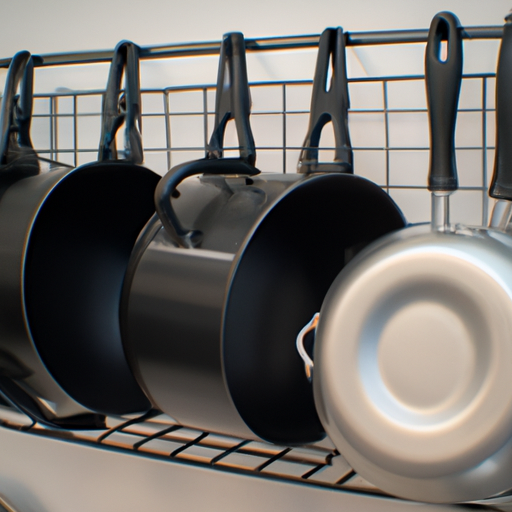John Smith
These tips were really helpful in taking care of my cookware. Thanks!

Before you start washing your cookware, make sure to remove any excess food or debris. Scrape off any stuck-on food with a non-abrasive scrubber or sponge. If there are stubborn stains, you can soak the cookware in warm, soapy water for a few minutes to loosen them. Additionally, check the manufacturer's instructions for any specific cleaning recommendations for your cookware.
The cleaning method you use will depend on the material of your cookware. For non-stick pans, avoid using abrasive cleaners or scrubbers that can damage the coating. Instead, opt for gentle dish soap and a soft sponge. Stainless steel cookware can withstand more vigorous scrubbing, but still, avoid using harsh abrasives that can cause scratches. Copper cookware requires special care, as it can tarnish easily. Use a copper cleaner or a mixture of lemon juice and salt to restore its shine.
When cleaning your cookware, always use hot water and dish soap. Scrub gently in circular motions to remove any food residue. For tough stains or burnt-on food, you can use a paste of baking soda and water as a natural abrasive. Avoid using metal scouring pads or harsh brushes, as they can damage the surface of your cookware. Rinse thoroughly with hot water to remove all soap residue.
After washing, it's important to dry your cookware thoroughly to prevent water spots and potential rusting. Use a clean dish towel or air dry the cookware upside down toensure proper drying. For non-stick pans, avoid stacking them while they are still wet, as this can damage the coating. Instead, allow them to dry completely before storing. For stainless steel and copper cookware, you can use a soft cloth to dry them and remove any water spots.
To maintain the quality of your cookware, it's important to store it properly. Avoid stacking heavy pots and pans on top of each other, as this can cause scratches and damage. If space is limited, consider using pot protectors or placing a soft cloth between each piece to prevent scratching. Hang your pots and pans on a pot rack or use hooks to keep them organized and easily accessible. Make sure to store lids separately to prevent them from scratching the surfaces of your cookware.

| Cookware Material | Cleaning Method | Special Care |
|---|---|---|
| Non-Stick | Gentle dish soap and soft sponge | Avoid using abrasive cleaners or scrubbers |
| Stainless Steel | Hot water and dish soap | Avoid harsh abrasives that can cause scratches |
| Copper | Copper cleaner or lemon juice and salt mixture | Tarnishes easily, requires special care |
By following these guidelines for washing and storing your cookware, you can prolong its lifespan and ensure that it continues to perform well in the kitchen. Proper maintenance and care will keep your cookware looking great and ready for all your culinary adventures.
John Smith
These tips were really helpful in taking care of my cookware. Thanks!
Emily Johnson
I've always struggled with cleaning my copper cookware, but the tips mentioned here worked like a charm!
David Wilson
The article provided some useful tips, but I wish there were more details on specific cleaning products to use.
Sarah Thompson
I had no idea that stacking wet non-stick pans could damage the coating. This article taught me a lot about proper cookware care.
Michael Davis
I found the section on drying cookware particularly useful. I'll make sure to dry my pots and pans thoroughly from now on.
|
|
Margaret Daugherty is a professional chef with over 10 years of experience in the culinary industry. She has extensive knowledge of cookware and is passionate about sharing tips and techniques for maintaining its quality. |